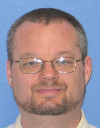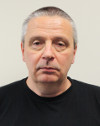Die Stacking is Happening
Bryan Black
Senior AMD Fellow, USA
[December 18, 08:30 - 09:30]

Abstract
This talk will start with a sample die stacking technology flow illustrating interesting interactions between technology and design. It will explain why, after more than 10 years of development, die stacking is finally happening in mainstream computing. The talk will close with an outline of how die stacking is going to impact the industry.
Bio
Bryan Black received his PhD from Carnegie Mellon University located in Pittsburgh, PA. With over 20 years of experience Black has had the honor of working at Motorola, Intel and AMD. He has done a little of everything from devices to circuits to microarchitecture to DRAM to test to packaging. Black is a Senior Fellow at AMD and runs the AMD die stacking program.
Abstract
Emerging real-world graph problems include: detecting community structure in large social networks; improving the resilience of the electric power grid; and detecting and preventing disease in human populations. Unlike traditional applications in computational science and engineering, solving these problems at scale often raises new challenges because of the sparsity and lack of locality in the data, the need for additional research on scalable algorithms and development of frameworks for solving these problems on high performance computers, and the need for improved models that also capture the noise and bias inherent in the torrential data streams. In this talk, the speaker will discuss the opportunities and challenges in massive data-intensive computing for applications in computational science and engineering.
Bio
David A. Bader is a full professor and chair of the School of Computational Science and Engineering, College of Computing at Georgia Institute of Technology and Executive Director of High Performance Computing. His research is supported through highly-competitive research awards, primarily from NSF, NIH, DARPA, and DOE, and his main areas of research are in parallel algorithms, combinatorial optimization, massive-scale social networks, and computational biology and genomics. He received his Ph.D. in from The University of Maryland, is a Fellow of the IEEE and AAAS, a National Science Foundation CAREER Award recipient, and has received numerous industrial awards from IBM, NVIDIA, Intel, Cray, Oracle/Sun Microsystems, and Microsoft Research. He serves as a board member of the Computing Research Association (CRA), on the NSF Advisory Committee on Cyberinfrastructure, on the Council on Competitiveness High Performance Computing Advisory Committee, on the IEEE Computer Society Board of Governors, and on the Steering Committees of the IPDPS and HiPC conferences and is the editor-in-chief of IEEE Transactions on Parallel and Distributed Systems (TPDS). Dr. Bader is a leading expert on multicore, manycore, and multithreaded computing for data-intensive applications such as those in massive-scale graph analytics and has co-authored over 130 articles in peer-reviewed journals and conferences.
Abstract
Resilience is a critical issue for large-scale platforms. This talk will survey fault-tolerant techniques for high-performance computing:
- Overview of failure types and typical probability distributions
- Brief discussion of application-specific techniques, such as ABFT
- The standard general-purpose technique, checkpoint and rollback recovery
- Recent extensions with replication, prediction and silent error detection
- Relevant execution scenarios, evaluated and compared through quantitative models.
The talk includes several illustrative examples and targets a general audience.
Bio
Yves Robert received his PhD degree from Institut National Polytechnique de Grenoble. He is currently a full professor in the Computer Science Laboratory LIP at ENS Lyon. He is the author of 7 books, 130+ papers published in international journals, and 200+ papers published in international conferences. He is the editor of 11 book proceedings and 13 journal special issues. He is the advisor of 26 PhD theses. His main research interests are scheduling techniques and resilient algorithms for large-scale platforms. Yves Robert served on many editorial boards, including IEEE TPDS. He was the program chair of HiPC 2006 in Bangalore, IPDPS 2008 in Miami, ISPDC 2009 in Lisbon, ICPP 2013 in Lyon and HiPC 2013 in Bangalore. He is a Fellow of the IEEE. He has been elected a Senior Member of Institut Universitaire de France in 2007 and renewed in 2012. He has been awarded the 2014 IEEE TCSC Award for Excellence in Scalable Computing. He holds a Visiting Scientist position at the University of Tennessee, Knoxville since 2011.




